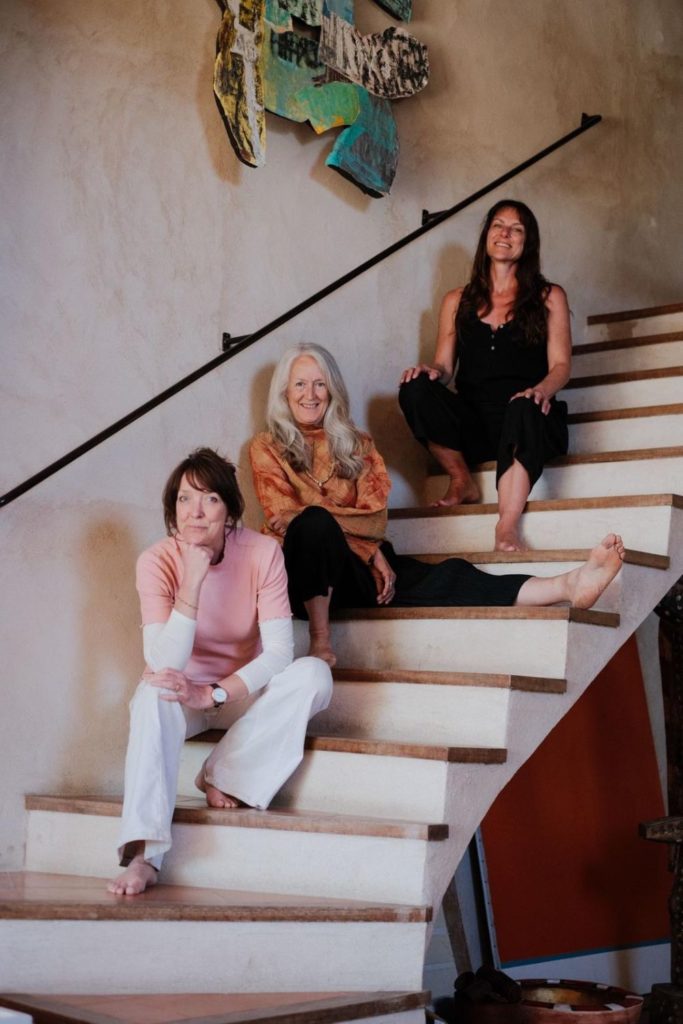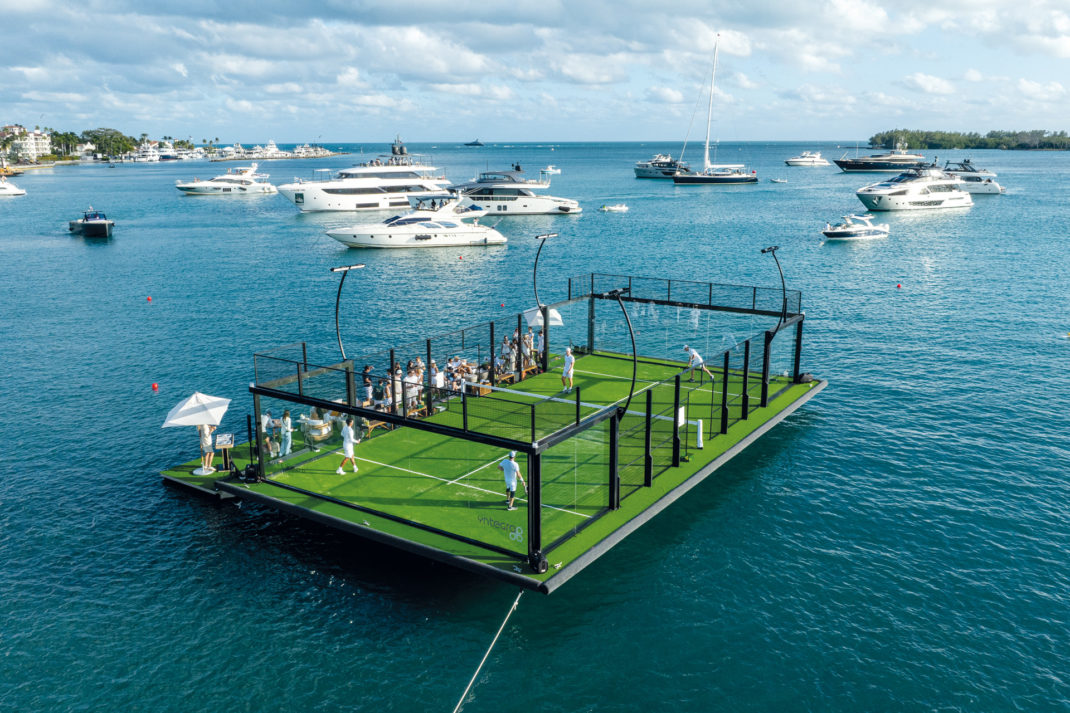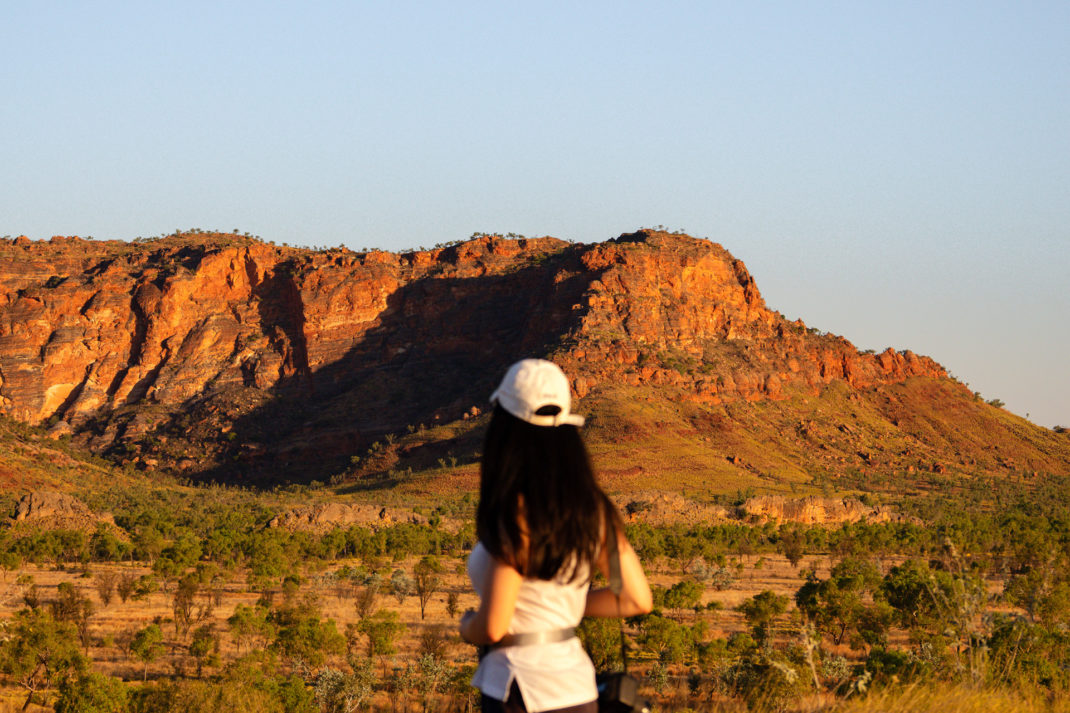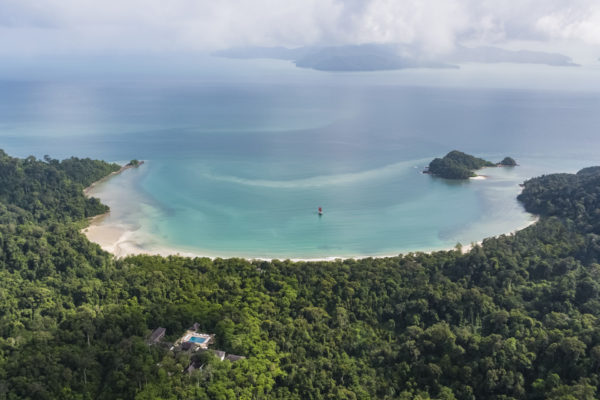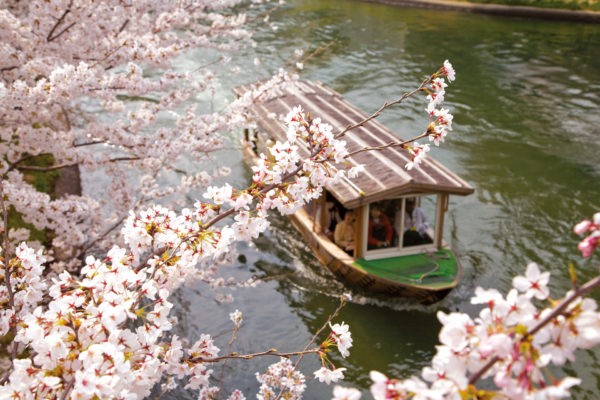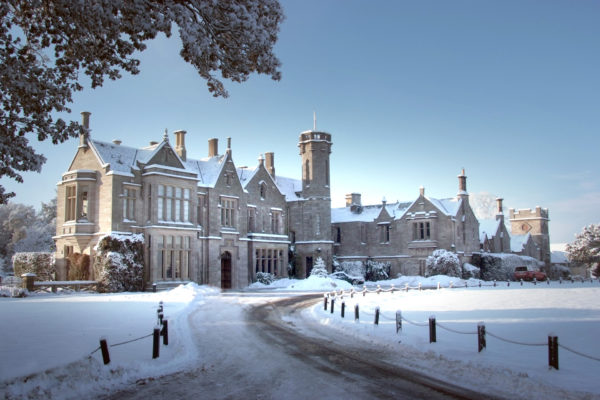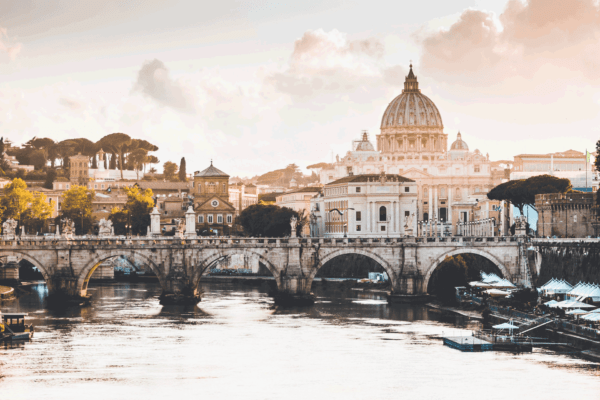Serpents In Paradise: The Datai Langkawi, Malaysia
By
1 year ago
Getting back to nature
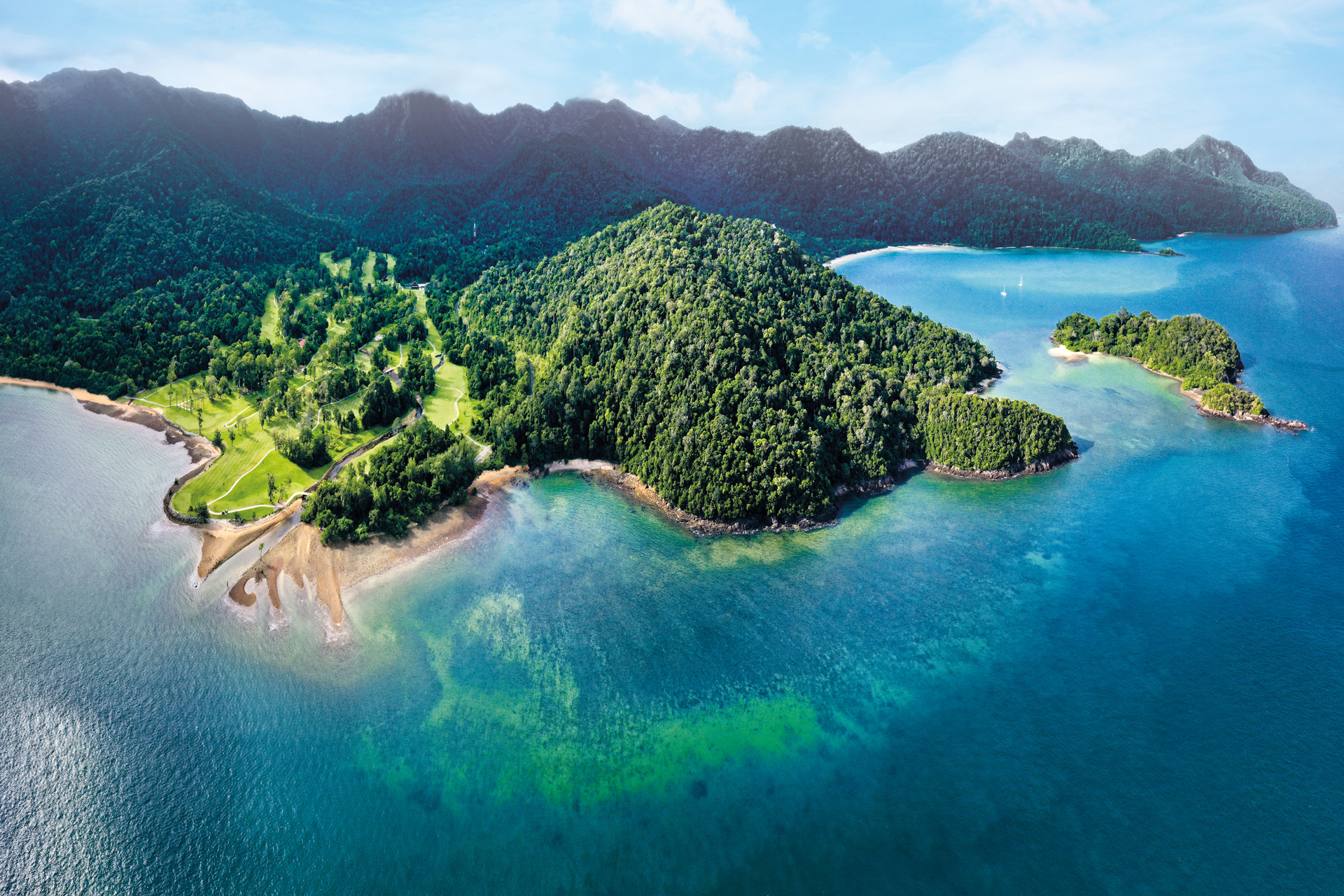
Teresa Levonian Cole gets back to nature at The Datai Langkawi – although she could have skipped the encounter with the reticulated python.
Read the C&TH Guide to Responsible Tourism
The Datai Langkawi, Malaysia
‘Would you like to see a serpent?’ asks Mukhris, the marine biologist, as we kayak through the mangroves. I like the biblical implication but, on balance, no. The serpent, in this instance, is a reticulated python – the longest snake on earth – that likes to while away the hours on branches that hang low from the huge mangrove trees in this eerie, silent world. But then, Langkawi is known as Paradise Island, and serpents in paradise go back a long way. I duck and paddle on through the water, and don’t look up…
As a visitor to The Datai Langkawi in Malaysia, which champions local flora and fauna indiscriminately (arachnids and reptiles included) I can’t complain, provided the creatures do not stray within the confines of my jungle villa – a stilted construction of balau wood with belian (diamond wood) shingle roof, on which long-tailed langur monkeys like to party. Celebrating its 30th anniversary this year, The Datai was the pioneering creation of architect Kerry Hill and designer Didier Lefort. Intended to blend into the surrounding jungle, its buildings cascade from a ridge, through dense jungle, to the beach 40 metres below. Measures to conserve this pristine biodiversity of rainforest, mangrove swamp and beach have grown over the years, culminating with the creation, in 2019, of The Datai Pledge. This commits to protect not only land, sea and airborne creatures, and their environment, but also to educate youth and work with local communities, while implementing sustainable business practices.
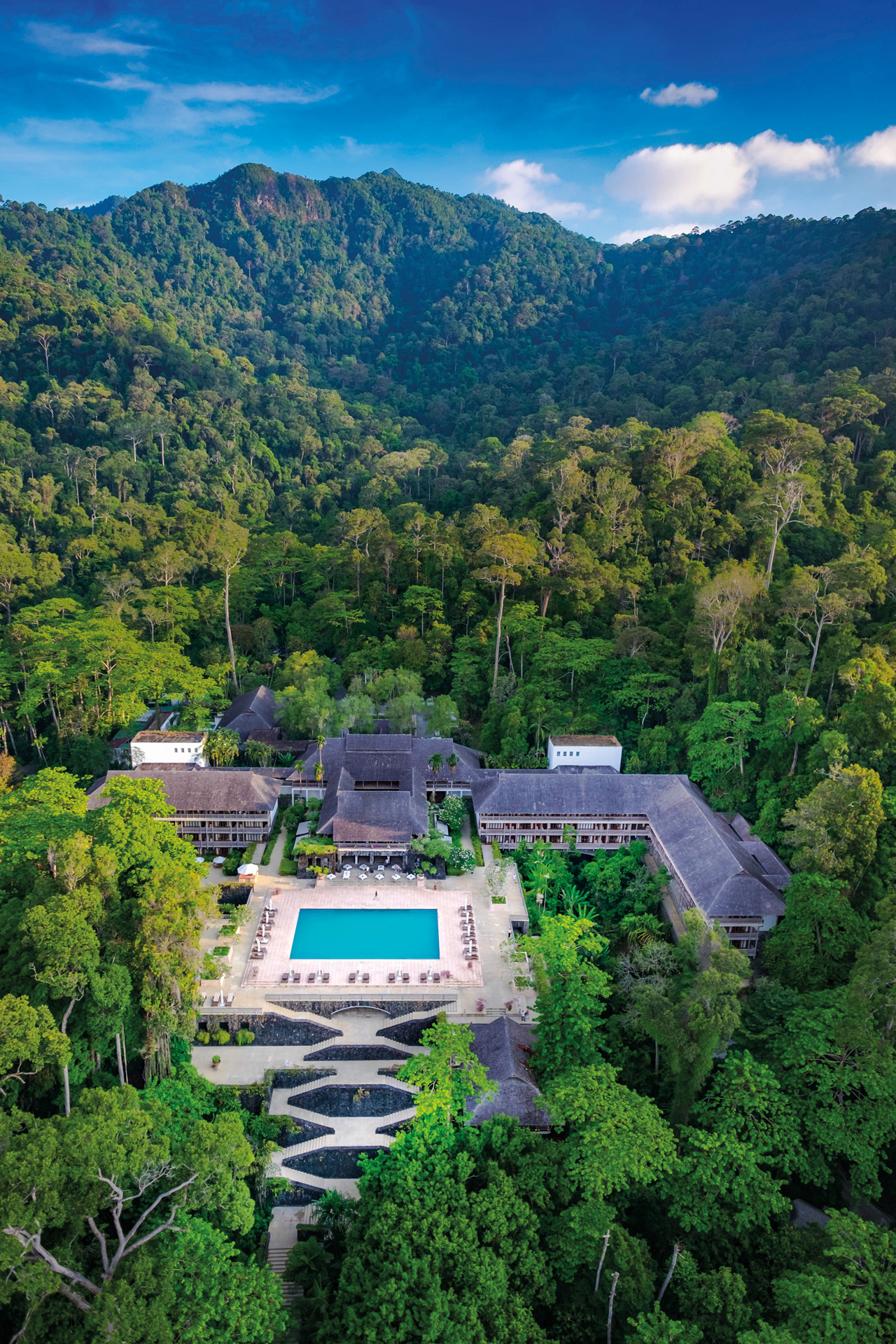
The Datai Langkawi
If this sounds like hot steam whistling from a worthy bandwagon (for who has not tired of fig-leaf claims of conservation and sustainability?), the reality comes as a pleasant surprise. I bow out of a backstage tour of the hotel’s rubbish dumps, where up to 93 percent of waste is recycled, and instead visit The Lab – itself built entirely of recycled plastic and 7,968 bottles – for a practical class in making soaps and candles from recycled wax and oils: an activity that invokes all the joyful abandon (and competitiveness) of kindergarten.
I also visit the hydroponic and organic gardens. In this fragrant, butterfly-filled enclosure, I discover an unlikely superstar: a small, black bee that looks like a fly. This is the wild, stingless bee, Trigona itama, which produces a pale watery honey that is liable to ferment, imparting a sour, lemony flavour to its creation. What impresses me is not so much that this honey is said to contain more antioxidants than Manuka honey, but that the hives – there are ten of them each with 2,000–4,000 inhabitants – are such an ungodly mess.
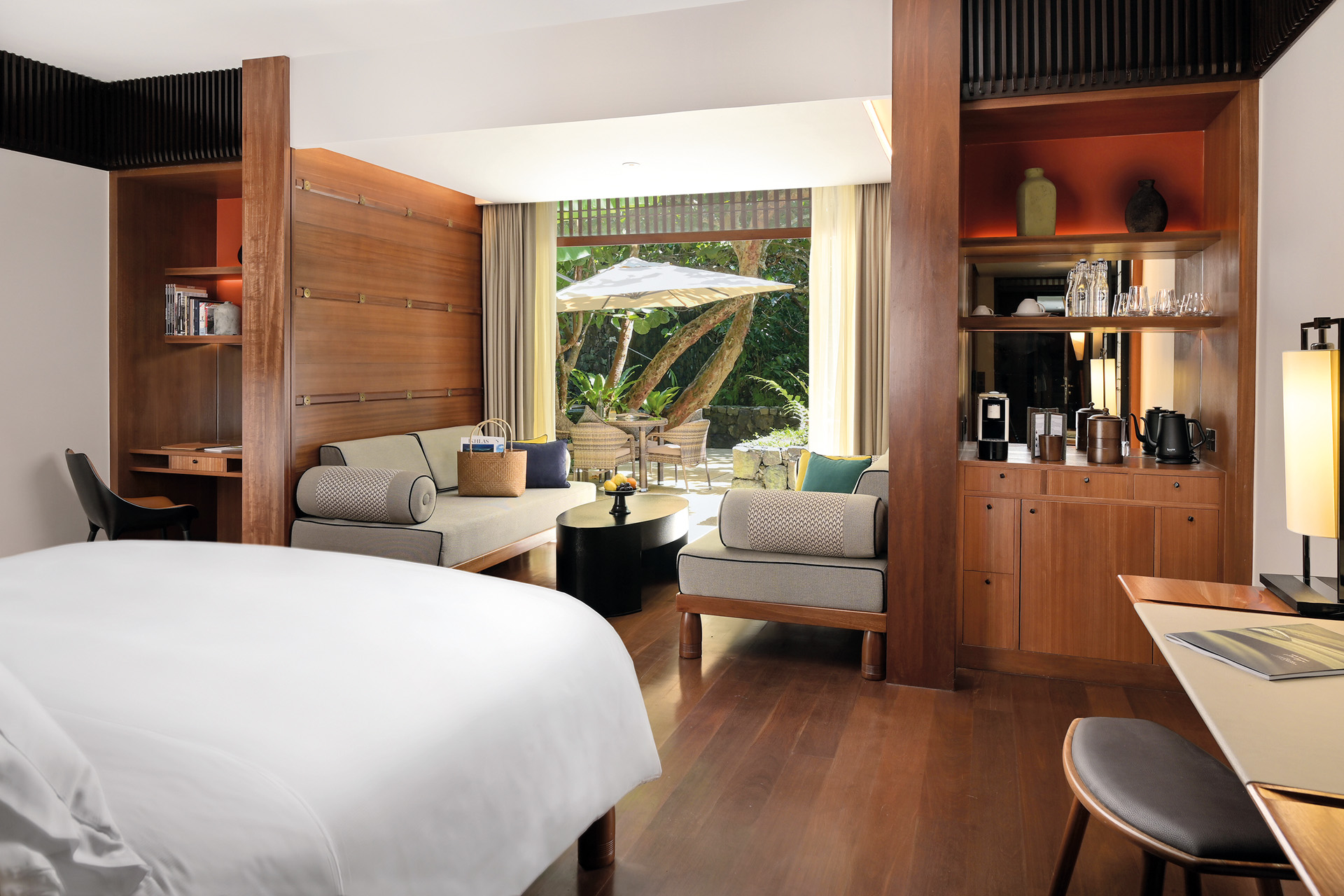
Canopy Garden Bedroom
These bees defy nature’s symmetry. Forget neat hexagonal honeycombs. Here we have what looks like a tangle of dried seaweed, whose ‘pods’ are in fact honey pots, made entirely of propolis, from which I learn to extract the golden liquid. From syringe to teaspoon… it is quite delicious. And, according to the beekeeper’s calculations, I consume more than 12,000 flowers-worth of pollen.
Rainforest tours prove equally educational. Naturalists Irshad Mobarak and Dev Dass are a mine of information. I see rare colugos – AKA flying lemurs, the only primates that can ‘fly’ – camouflaged within the cleft of a tree. Another unique primate is the slow loris – with poison stored in its elbow, it is the only venomous primate, ‘and not that slow’. In the primary rainforest that surrounds the resort, 35 security guards are employed to protect creatures such as the endangered mouse deer, the magnificent hornbills that nest here, and its rare trees. Agarwood, Dev tells me, can fetch £2,500 per kilo – and this forest is home to four trees per acre.
I also learn the unique and clever means plants use to protect themselves. Take Lagerstroemia speciosa, whose seeds are a narcotic: ‘Monkeys chew the seeds, get high and fall off the branches. They won’t be back!’ says Irshad. As for the ingenuity of fungi – there is no doubt that if it had opposable thumbs, it would rule the world.
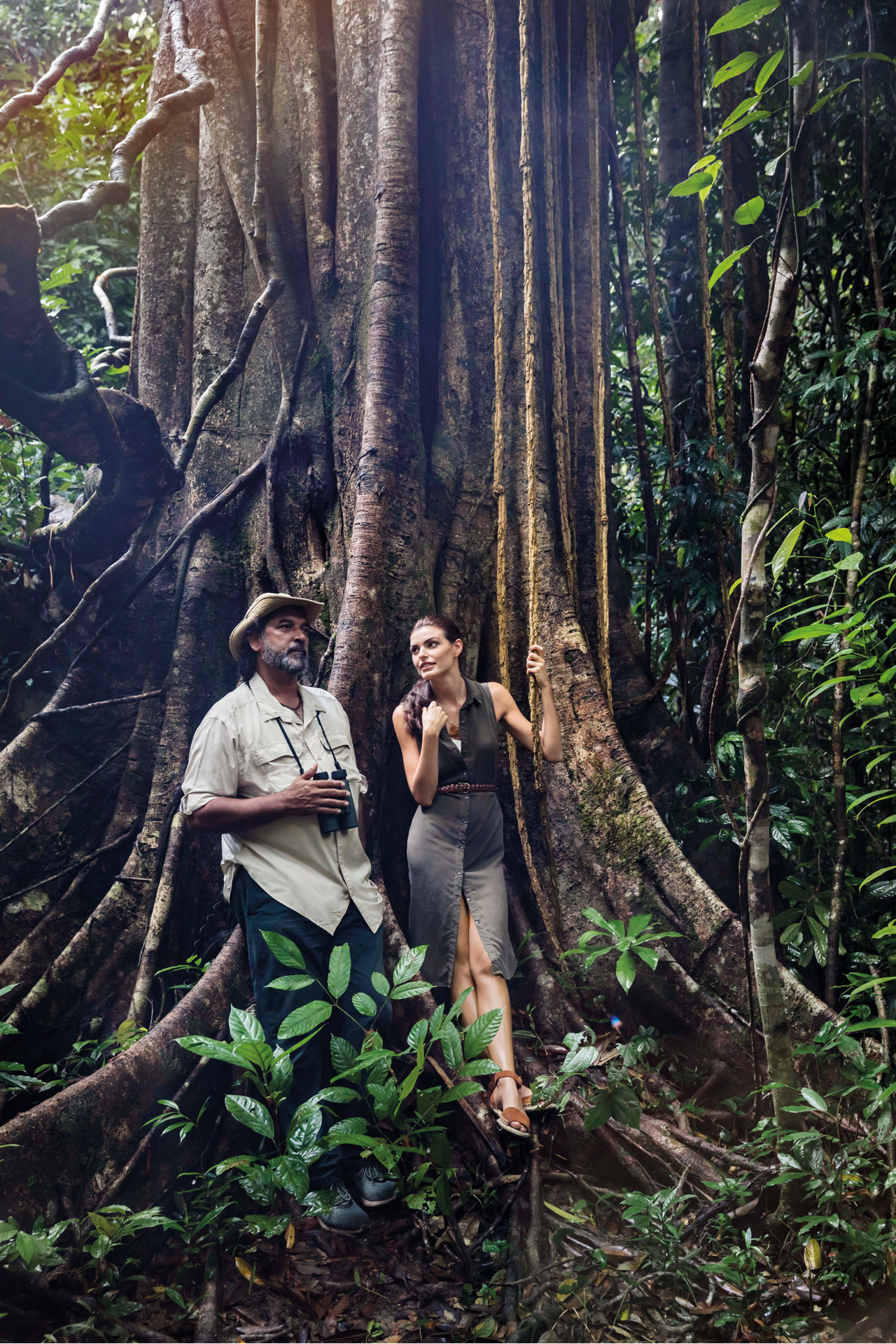
Irshad Mobarak (Resident Naturalist) by a Strangling Fig tree
With Irshad, I trek to a forest pool beneath Mount Machinchang at dawn and learn that the benefits of ‘forest bathing’ are not merely psychological, but measurable. ‘Trees release phytoncides, which have been proven to boost the immune system,’ he says, ‘and dawn, when the dew is still on the ground, is when the benefits are most potent.’
One of the rare trips I take beyond the resort’s 65 acres is to the Kilim Geoforest Park, with its contrasting landscape of karst limestone cliffs, reminiscent of Guilin. I go with Dr Luisa of MariCet – an NGO with whom The Datai has teamed up for the protection of Bryde’s whales, Indo-Pacific humpback dolphins, and finless porpoises. We sail along the Kilim river into the open sea – a world apart, with opaque, jade waters, mangroves, and sheer, undercut cliffs to which trees somehow manage to cling. A brown-winged kingfisher takes a dive, to emerge with a fish in its huge beak.
Overhead, brahminy kites and white-bellied sea eagles soar. We spot pods of porpoises porpoising, as they do. It is so beautiful I’m not too disappointed that the dolphins remain elusive today – no doubt holidaying in nearby Thai waters, where we cannot follow. In such an environment, wellbeing is a given – from the freshest fish and delicious cuisines of the four restaurants, to a menu of exotic medicinal herbal teas, devised by the late Dr Ghani. But one of my most memorable experiences takes place indoors, while I am supine. As I arrive at the spa for a traditional Malaysian healing massage using local and natural ingredients, an almighty thunderstorm breaks out, which lasts for the duration of the treatment. With lightning electrifying the sky, I ask for the doors of the spa villa to be opened, the better to experience the drama of the thunderclaps, the pelting rain in the jungle and the rush of the swollen stream beneath my terrace. And in this hallowed wooden space, surrounded by nature’s theatre, I feel completely at one with the world.
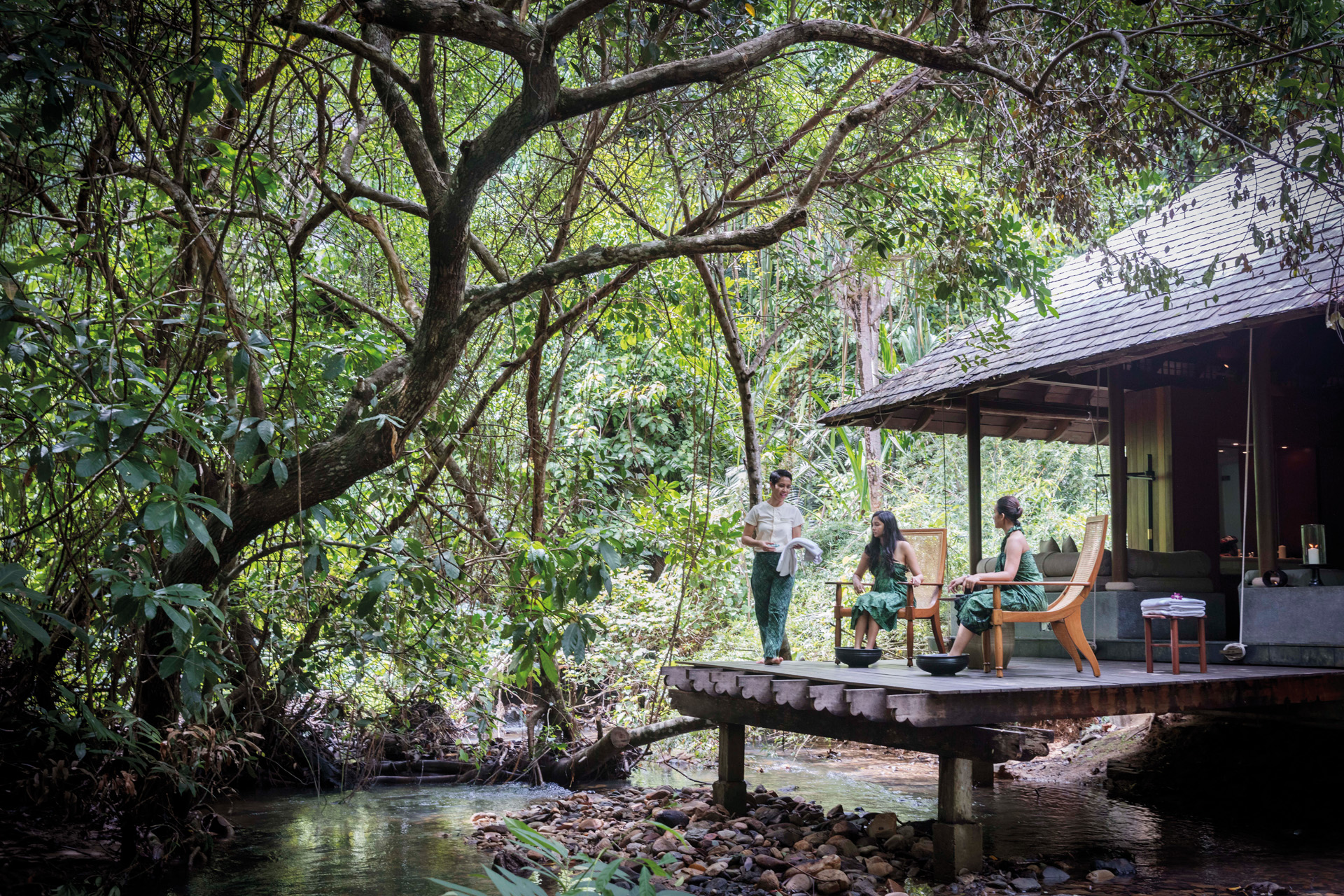
The Spa
BOOK IT
Seven nights B&B at The Datai, including flights from London with Singapore Airlines, private transfers and UK airport lounge passes from £2,210pp with Elegant Resorts. Includes two complimentary nights and a ten percent discount. Must be booked 30 days in advance and blackout dates apply. Valid until 31 March 2024. elegantresorts.co.uk

